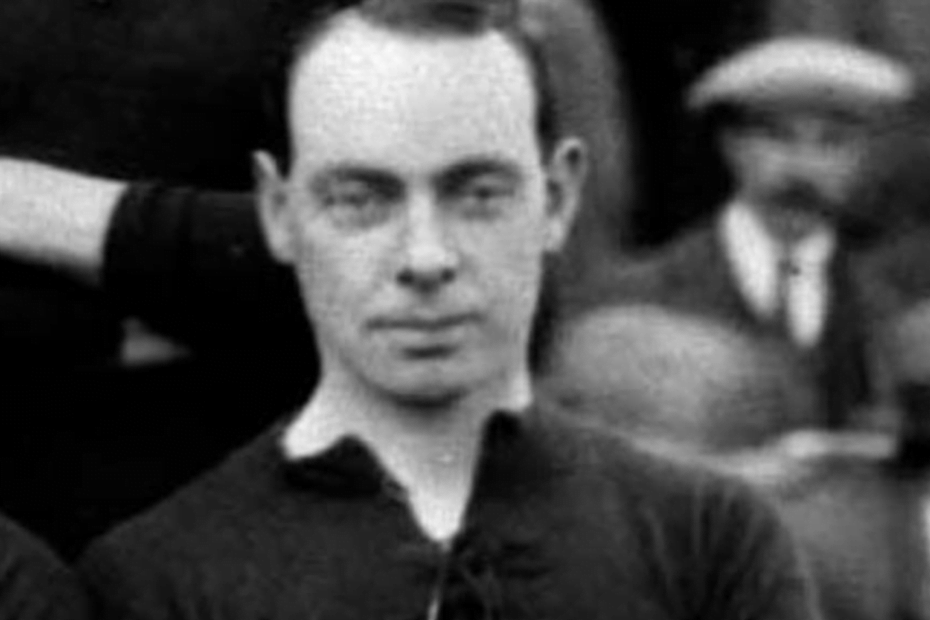Tony Attwood explains.
Dr James Alexander Paterson was an Arsenal player who in many regards should be remembered by us all not just as an exceptional Arsenal man and for his gallantry in the first world war, but also because he plays a key part in unravelling the story of the deliberate falsehoods that were told (and are still believed by some) about the club’s early days.
Jimmy Paterson was born on 9 May 1891 in London, but moved to Scotland where he trained to be a doctor while playing for Rangers, with whom he won the Scottish League.
During the First World War, Dr Paterson was appointed Medical Officer with the rank of Major, and served on the front line. In 1917 as he was awarded the Military Cross for acts of exemplary gallantry during active operations.
Paterson was Arsenal’s best player
Post-war, Paterson moved to London, making his debut for Arsenal on the left wing against Derby on 30 October 1920, playing as an amateur and becoming Arsenal’s best player. Leslie Knighton was the Arsenal manager.
When Arsenal just avoided relegation for two seasons running, club Chairman, Sir Henry Norris, sacked Knighton, amid some acrimony. Knighton was replaced by Herbert Chapman, who turned Arsenal into the major force of English football.
And that would have been that had Leslie Knighton not written his autobiography, published in 1946. In it, he suggested that the reason Arsenal were almost relegated under his tenure was due, not to him as manager, but to Sir Henry Norris.
Indeed the autobiography also abounds with wild tales of drug abuse, corruption and incompetence, including the notion that Sir Henry had bribed other clubs to vote Arsenal into the First Division, upon its expansion in 1919.
Which is where Dr James Alexander Paterson comes back in. Among these allegations is one that suggested Norris wouldn’t buy any players, which reduced Knighton to playing the club doctor in matches because there were simply not enough players in the squad. And who did he say was the club doctor? Dr James Alexander Paterson, the Scottish league winner with Rangers, and a hero whose wartime bravery certainly did not deserve such gross discourtesy.
Despite Paterson being Arsenal’s best player, he is called the ‘brother-in-law of the club’s physio’ in Knighton’s autobiography.
Knighton’s falsehoods were repeated in a later history of the club
Sadly, Dr Paterson’s role with Arsenal was further misunderstood by Bernard Joy in his influential book Forward Arsenal! Noting that Patterson played as an amateur, Joy assumed he had played in Scotland for Queens’ Park, not realising that Paterson had won the league twice as an integral part of the Rangers team.
Paterson retired from playing in 1923/4, but then was persuaded by Herbert Chapman to return to playing, his final game on 6 March 1926.
Sadly, Dr Paterson is now largely forgotten but he was a player we should remember as one of those who helped Arsenal avoid relegation in 1925, and who gave loyal and unstinting service both to his country and to Arsenal FC.
Equally sadly, it is the wild and baseless allegations of Knighton, possibly Arsenal’s most incompetent manager, that are remembered, including his denigration of the man who saved Arsenal financially in 1910 (Sir Henry Norris) and who subsequently brought Herbert Chapman, our first trophy winning manager, to the club.
Image: arsenal.com https://www.arsenal.com/historic/players/dr-paterson
